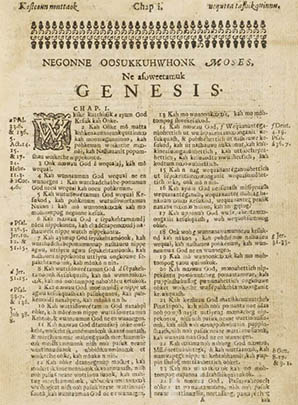Skeptics have pointed out that the most ancient extant version of the Old Testament has existed for less than 1,500 years. They state that, after centuries of copies, errors had to have crept into the original language text used to create a Bible translation.
The accurate preservation of the Old Testament should be a concern for all Christians. The point made by skeptics, by use of an analogy, is like a game where children sit in a circle. The first one whispers a sentence into the ear of the second child. The second child whispers the same message into the ear of the third child and so on. By the time the message reaches the ear of the last child it has changed dramatically.
Start of Bible Preservation
The start of what we now call Biblical preservation began with Moses (Deuteronomy 31:24 - 26) and his writing of the first five Old Testament books. The tribe of Levi was charged to protect the Scriptures. Starting at the time of Moses, Israel's religious leaders zealously preserved the writings that would become the first part of our modern Bibles.

Joshua also told the children of Israel to place special emphasis on God's words (Joshua 8:34). As a side note, many people assume that Paul wrote more of the Bible than anyone else. Actually, Paul wrote more books than anyone else, but Moses wrote more in terms of volume. Moses wrote about three times more raw material than Paul.
God knew that eventually the Israelites would want to be ruled by a king that was human, so he gave them instructions on what the new king should do. Any new king was required to write for himself a copy of God's law so that he could study it all his life and observe what it said (Deuteronomy 17:18 - 19).
A Unique Copy System
Israel's reverence of the Word spurred them to create a copying system to preserve the Old Testament that is truly amazing! They understood it would be very easy to make copying mistakes. They solved the problem of human errors creeping into the text by creating a set of copying rules.
One copy rule was to count the number of words of a completed Old Testament scroll and compare it with the original. Another was that every line on a given page had to be the same in number of words, etc. as the original. When a copy was completed, another person was required to verify the middle letter of both the original and the copy were the same. Many other copy rules were enforced in order to insure accurate transmission of God's word.
A copy of God's word was always kept in the temple, inside the Ark of the Covenant. It was ancient Israel's master copy of the Eternal's testament to his people. Even after the destruction of the temple in 586 B.C., the scrolls containing God's words were preserved. While in Babylonian captivity some Levites, who would eventually take on the title of Scribe, painstakingly copied and distributed the words of God to fellow captives.
Ezra Finalizes Old Testament
During Judah's captivity a prophet named Ezra greatly enhanced and advanced the study of the Bible. Assisted by fellow priests and Levites of the Great Assembly or Synagogue, they completed the final editing and canonization of what we call the Old Testament in the late fifth century B.C. Scribes, even after Jews returned to the land after their captivity, continued the tradition of preserving the Scriptures.
By the time of the New Testament, when Jesus was born, the Scribes had become so obsessed with counting the jots and tittles that they forgot the very messages that were in the sentences they were transcribing! Their obsession with detail caused Christ to condemn them for their over zealousness (Matthew 23:23). They continued their time-honored work even after the second temple was destroyed in 70 A.D.
God insured that the text of the Old Testament would be preserved accurately. No English translation, however, is perfect. For this reason, we should look at several translations when we have difficulty in understanding a particular verse.